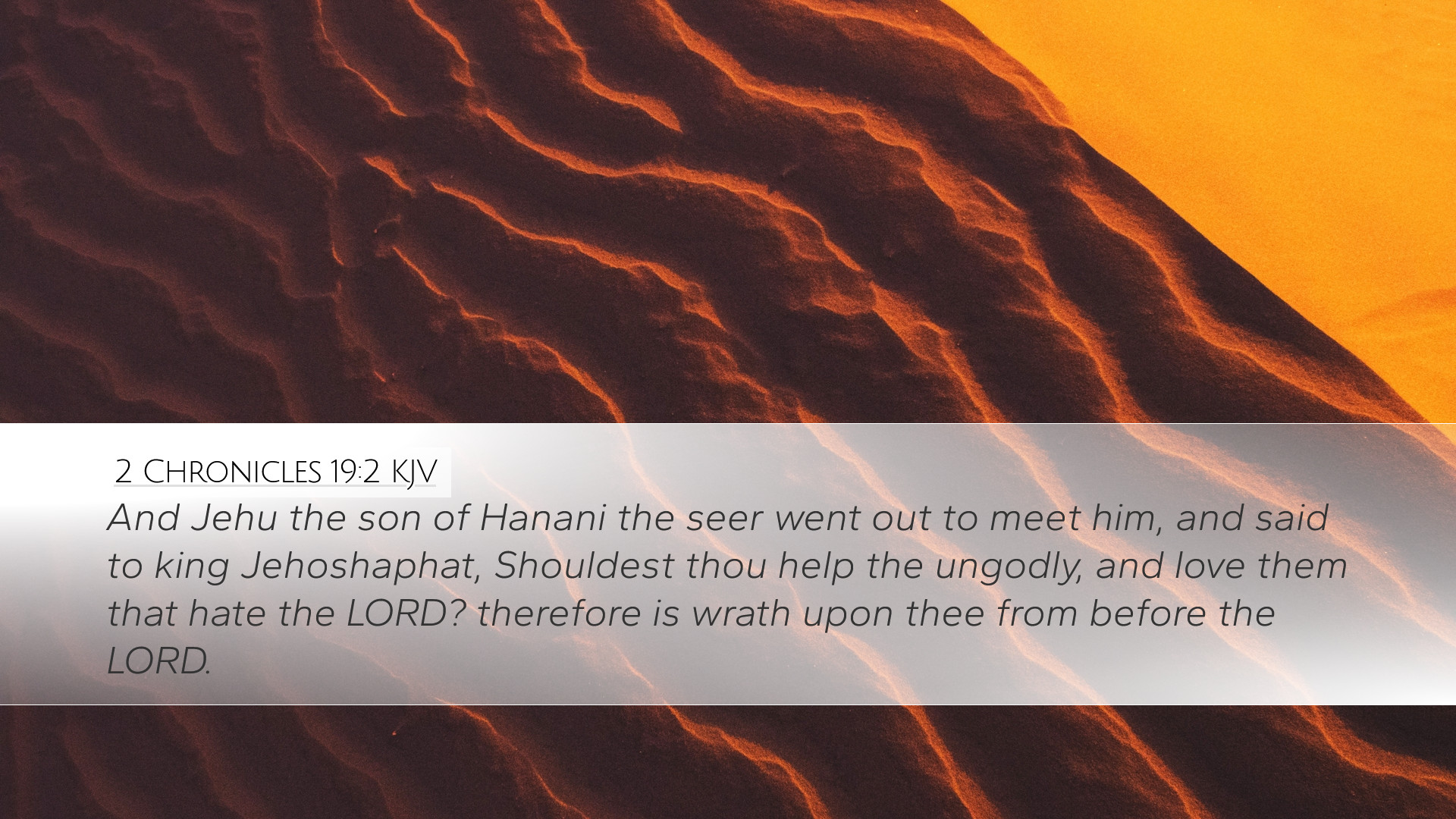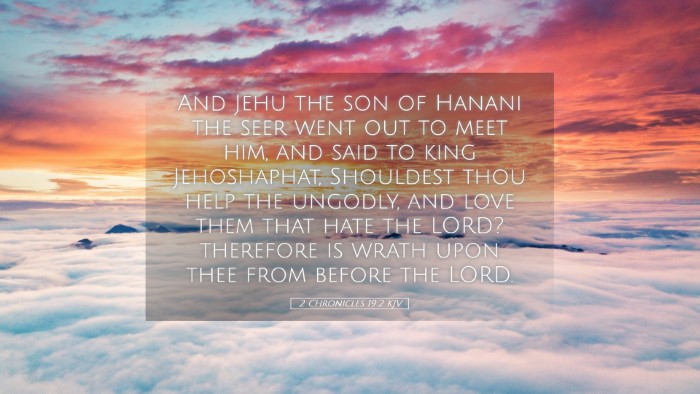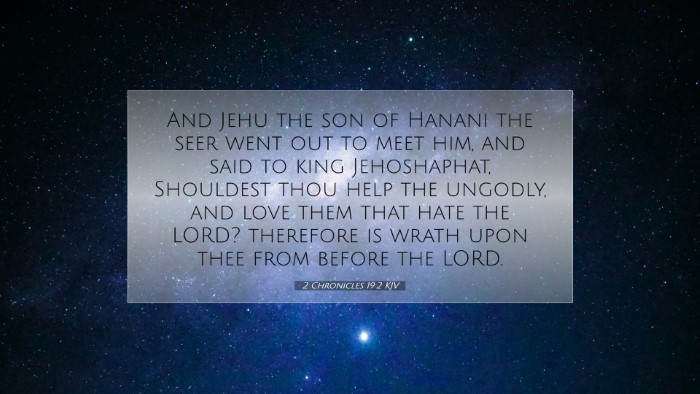Bible Commentary on 2 Chronicles 19:2
Verse: "And Jehu the son of Hanani the seer went out to meet him, and said to king Jehoshaphat, Shouldest thou help the ungodly, and love them that hate the Lord? therefore is wrath upon thee from before the Lord."
Introduction
This verse serves as a powerful admonition from the prophet Jehu to King Jehoshaphat, urging him to reconsider his alliances and inclinations towards those who oppose God's will. It speaks to the larger biblical themes of divine discipline, the consequences of ungodly associations, and the need for faithfulness to God’s covenant.
Commentary Insights
Contextual Background
2 Chronicles 19 follows the narrative of King Jehoshaphat’s involvement with wicked King Ahab, highlighting the dangers of alliances with those who do not share a devotion to the Lord. The chronicler documents Jehoshaphat’s mixed legacy as he sought to implement reforms in Judah while simultaneously extending fellowship to the ungodly.
Divine Warning
Jehu, the seer, represents the voice of prophetic authority in this verse. His confrontation with Jehoshaphat serves as an important biblical principle: God's people are called to discern their associations. The admonition “Shouldest thou help the ungodly” underscores the gravity of compromising one’s integrity for political gain or friendship.
Jehu's Prophetic Message
In this message, Jehu inquires whether it is appropriate for a king committed to Yahweh to align himself with those who despise the Lord. This rhetorical question highlights an inherent tension in Jehoshaphat’s actions and his faithfulness to God. The terms "ungodly" and "those that hate the Lord" are stark and provide an ethical framework against which future actions must be measured.
- Critique of Compromise: Jehoshaphat’s willingness to forge alliances with Ahab raises critical questions about moral compromise. The assessment is that such relationships put him in jeopardy of divine wrath.
- The Nature of Friendship: The passage brings a sobering reminder to believers about the nature of friendships and partnerships, especially with those who completely oppose God's principles.
Theological Implications
The theological implications of this confrontation speak volumes about the nature of God’s justice and the seriousness of holiness. The phrase “therefore is wrath upon thee from before the Lord” indicates that the divine judgment stems from active disobedience and a failure to uphold righteousness.
- Consequences of Disobedience: It reveals the covenantal nature of God’s relationship with His people — faithfulness to God leads to blessing while disobedience incurs judgment.
- Call to Repentance: Jehu’s confrontation serves as a call to repentance, urging Jehoshaphat to turn away from the path of destruction and align himself with the will of God.
Lessons for Today’s Believers
This verse holds profound lessons for modern believers, particularly pastors, students, and theologians:
- Discernment in Relationships: It is imperative to maintain discernment in whom we choose to align ourselves. The faithful must engage with the world but should be cautious of forming deep ties with those who reject God.
- Leadership Accountability: Leaders in faith must be held accountable for their decisions and actions; they wield influence and their choices can lead others into righteousness or sin.
- Emphasis on Righteousness: There exists an enduring call for righteousness that transcends erudition; it is a matter of the heart and should dominate the believer's walk.
Conclusion
2 Chronicles 19:2 is a striking reminder of the importance of fidelity to God amidst the complexities of leadership and friendship. Through the words of Jehu, we encounter a divine challenge to examine our associations and the potential consequences of our choices. Pastors and theologians alike must reflect deeply on this call to purity, ensuring that their ministries and lives uphold the standards set forth in Scripture, thus serving as a beacon of righteousness in a world filled with compromise.


